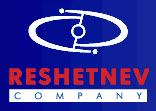GLONASS Union and China Satellite Navigation Office (CSNO) agree on initial joint pilot projects
6 August 2014

Within the scope of the First China-Russia Expo and the First Russian-Chinese Satellite Navigation Forum, China's Satellite Navigation System Management Office (CSNO) and GLONASS Union held a conference on applications for satellite navigation. The meeting was moderated by GLONASS Union Vice President Evgeniy Belyanko and CSNO Deputy Director Yang Jun.
In-depth discussion on enhancing cooperation took place at the meeting, first and foremost pertaining to applications for GLONASS/BeiDou-based technologies. Both sides acknowledged the need to establish a Satellite Navigation Subcommittee within the framework of the Joint Commission for the Regular Meetings of Heads of Government of China and Russia, and set priority directions for cooperation, which include:
- Development and harmonization of the two countries' standards, pertaining to applications for satellite navigation
- Joint development and advancement of GLONASS/BeiDou navigation products in regard to microelectronics, end user equipment, and adjacent sectors
- Cooperation on applications for transport and related sectors
"We further agreed to cooperate on several pilot projects; the first is deploying a LKKS-A-2000 local ground-based augmentation station (GBAS), produced by the Russian R&D company NPPF SPEKTR, at a Chinese airport. This navigation, landing, and signal monitoring system will provide area navigation and precision approach and landing to aircraft using both GLONASS and BeiDou satellite navigation systems.
The second project we discussed involves augmentation stations for inland waterway vessel traffic management systems. Their developer, Saint Petersburg company Transas, will carry out systems integration as well. Augmentation stations with GLONASS/BeiDou/GPS will be used to monitor vessel traffic on one of the rivers in China, enhancing navigation precision," said GLONASS Union Vice President Evgeniy Belyanko.
"NPPF SPEKTR's advanced expertise in utilizing two satellite navigation systems for aircraft precision approach and landing will enhance flight safety and regularity in LKKS-A-2000 GBAS-equipped airports, and permit the Civil Aviation Administration of China to work out the modern satellite technology-based CNS/ATM and PBN procedures that meet the ICAO requirements," said NPPF SPEKTR General Director Oleg Zavalishin.
"Over the 15-plus years that the Transas Group has been doing business in China, the company secured leading positions in a number of sectors – marine navigation and technical training simulators, onboard navigation systems, and shore-based maritime safety systems. Integration processes in the field of satellite navigation, initiated by our countries' governments, present entirely new opportunities for cooperation and open up totally new market segments. Following the implementation of the agreements reached, Transas has every intention to expand its presence in China's marine industry, as well as to focus on advancing its products and services for the aviation sector," said Yuri Ishutin, Financial Controller at Transas Technologies, part of the Transas Group.
In order to strengthen the cooperation between the two countries, two consulting groups – Standardization and Joint Navigation Products Development – will be established by the 15th of June. The primary task of the Standardization Consulting Group will become distribution of standards, based on utilizing GLONASS and BeiDou satellite navigation systems, throughout the entire international European Union – Russian Federation – Kazakhstan – People's Republic of China transport corridor. Joint Navigation Products Development Consulting Group will primarily focus on facilitating cooperation in microelectronics, end-user navigation equipment, and related sectors, including aerospace products.
Press release
In-depth discussion on enhancing cooperation took place at the meeting, first and foremost pertaining to applications for GLONASS/BeiDou-based technologies. Both sides acknowledged the need to establish a Satellite Navigation Subcommittee within the framework of the Joint Commission for the Regular Meetings of Heads of Government of China and Russia, and set priority directions for cooperation, which include:
- Development and harmonization of the two countries' standards, pertaining to applications for satellite navigation
- Joint development and advancement of GLONASS/BeiDou navigation products in regard to microelectronics, end user equipment, and adjacent sectors
- Cooperation on applications for transport and related sectors
"We further agreed to cooperate on several pilot projects; the first is deploying a LKKS-A-2000 local ground-based augmentation station (GBAS), produced by the Russian R&D company NPPF SPEKTR, at a Chinese airport. This navigation, landing, and signal monitoring system will provide area navigation and precision approach and landing to aircraft using both GLONASS and BeiDou satellite navigation systems.
The second project we discussed involves augmentation stations for inland waterway vessel traffic management systems. Their developer, Saint Petersburg company Transas, will carry out systems integration as well. Augmentation stations with GLONASS/BeiDou/GPS will be used to monitor vessel traffic on one of the rivers in China, enhancing navigation precision," said GLONASS Union Vice President Evgeniy Belyanko.
"NPPF SPEKTR's advanced expertise in utilizing two satellite navigation systems for aircraft precision approach and landing will enhance flight safety and regularity in LKKS-A-2000 GBAS-equipped airports, and permit the Civil Aviation Administration of China to work out the modern satellite technology-based CNS/ATM and PBN procedures that meet the ICAO requirements," said NPPF SPEKTR General Director Oleg Zavalishin.
"Over the 15-plus years that the Transas Group has been doing business in China, the company secured leading positions in a number of sectors – marine navigation and technical training simulators, onboard navigation systems, and shore-based maritime safety systems. Integration processes in the field of satellite navigation, initiated by our countries' governments, present entirely new opportunities for cooperation and open up totally new market segments. Following the implementation of the agreements reached, Transas has every intention to expand its presence in China's marine industry, as well as to focus on advancing its products and services for the aviation sector," said Yuri Ishutin, Financial Controller at Transas Technologies, part of the Transas Group.
In order to strengthen the cooperation between the two countries, two consulting groups – Standardization and Joint Navigation Products Development – will be established by the 15th of June. The primary task of the Standardization Consulting Group will become distribution of standards, based on utilizing GLONASS and BeiDou satellite navigation systems, throughout the entire international European Union – Russian Federation – Kazakhstan – People's Republic of China transport corridor. Joint Navigation Products Development Consulting Group will primarily focus on facilitating cooperation in microelectronics, end-user navigation equipment, and related sectors, including aerospace products.
Press release





